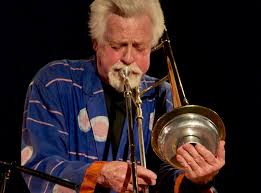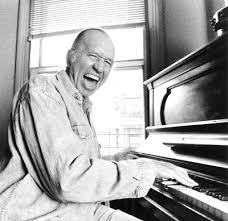I'm not much for movies
based on comics, but I saw “Black Panther” because I'm a SAG voter and it's nominated for Outstanding
Performance by a Cast in a Motion Picture. Since there is no "best
picture" category, per se, this becomes the closest equivalent. (‘Black
Panther’’ is also among the five films competing for the Best Adapted Screenplay
award by the Writers Guild of America).
The hype around the movie was pretty loud, so while I didn’t
look closely at the details, I knew that it had a black director and an almost completely black cast
and that it featured a somewhat edenic, technologically advanced African
country. Bravo, thought I, maybe the movement to get more minority
representation in "big" films was starting to get some momentum. Now
that I've seen the film, I'm kind of astonished that the actual somewhat
regressive racial attitudes portrayed by the movie did not seem to be the
subject of much, if any, public discussion.
I don't want to assume that people know the plot, so here’s a
very brief recap (skip the next 3 paragraphs if you know it):
The hero is T’Challa, son of the king of Wakanda,
T'Chaka. T’Chaka was assassinated by Luke Claw, the main bad guy (Caucasian
variety).
We learn that King T'Chaka killed his brother N'Jobu,
because N'Jobu had transgressed the rules of Wakanda-he'd stolen some of their
precious material vibranium, which he wanted to use to create powerful
munitions for liberation movements around the world. N'Jobu had a son and after
T'Chaka killed N'jobu, he chose to leave the child in the US and not take him
back to Wakanda. This child, named N’Jadaka, grows up to be the chief
antagonist to our hero T'Challa. We learn that as an adult, N’Jadaka joined the
US military and the scores of symmetrically tattooed scars on his body testify
to the many kills he racked up. He takes on the name Killmonger.
T'Challa goes on a mission to bring the assassin Luke Claw
back to Wakanda, but fails; in part, because of Killmonger's intervention. For
reasons of his own, Killmonger wants to kill Claw himself. He does and shows up
in Wakanda with Claw’s body in tow and challenges T'Challa to a ritual fight to
become the new king. He vanquishes T'Challa, assumes the throne and begins the
process of sending powerful vibranium weapons to black liberation struggles
around the world. The rest of the film is devoted to T'Challa retaking his
throne from Killmonger and returning Wakanda to its pristine, isolated
condition.
Let's take a look at how these two main characters are
presented. T'Challa is a handsome man of noble bearing. He speaks clearly, as
do all the residents of Wakanda, in an English inflected by a generalized
African accent. Occasionally, the native Wakandan language is spoken. It may be
rooted in an actual African dialect. I don't know, but it sounds convincing.
Killmonger, on the other hand, is inner city all the way.
Apparently he's as much a killer in the comics as he is in the movie, but
what is not said in the film is that he is not merely cunning, but very
intelligent, studying technology at MIT. His hair is in modified dreadlocks and
his talk is street. When he speaks the Wakandan language it sounds less
“genuine.” He is portrayed as violent, vengeful and hateful, thus rendering his
attitude about supporting liberation movements null and void.
After Killmonger has lost the final battle with T'Challa and
is sitting with a knife in his chest, he gives an emotional speech. He talks
about the fact that his father had promised to take him to the beautiful
Wakanda and of course, that it was never to be. T'Challa says that they can
keep him alive if he so chooses (Wakanda has very advanced medicine) and
Killmonger says no. He knows that if he is kept alive, he will be kept
imprisoned. He chooses to die and pulls the knife out of his body. He asks to
be buried in the sea, where his forefathers had leapt to their death from ships
rather than being brought as slaves to America. This bloodthirsty character is willing to act on the basis of his knowledge and understanding of the history of his people.
There is also the interesting plot wrinkle that has a white
CIA agent, Everett Ross, being taken for medical treatment to Wakanda after saving
the life of a Wakandan in the course of a gun battle with Claw. As an ex-pilot,
Ross is drafted to shoot down the planes trying to carry the contraband
vibranium out of Wakanda in the culminating battle. He succeeds in heroic fashion.
This is all simply muddle-headed. On the one hand, the dire
conditions that Africans suffered in America are acknowledged as are, during the
course of the film, the subjugations that minority populations endure
around the world. At the same time, proponents of anything but continuing the
isolation of Wakanda are portrayed as thugs and/or traitors.
The crux of the film is whether Wakanda will export its
technology or will remain isolated. The problem is posed in these terms: Either
Wakanda retains its idyllic existence or it initiates a worldwide bloodbath.
The last scene in the film attempts to ameliorate this dire dichotomy by
returning us to the scene of the fratricide that took place at the begininng of the film. There, while young black kids playing
basketball look on, T’Challa, who has bought up all the local real estate,
brings down a Wakandan aircraft, the first step in bringing a cultural exchange
center-part of a worldwide outreach effort.
Granted it is a comic put on film, but a project of this
magnitude, calculated to appeal to a worldwide audience, has chosen to
represent a political/cultural issue in a fairly retrograde way. Yes, this issue is far from simple: When, if ever, is armed struggle necessary to achieve
political liberation? Unfortunately, the film is not prepared to actually
address that problem, taking a reductionist, somewhat retrograde approach; one
that pits black people against each other, with the “good” people on the side of isolation and the “bad” ones on the side of engagement in the struggle.







